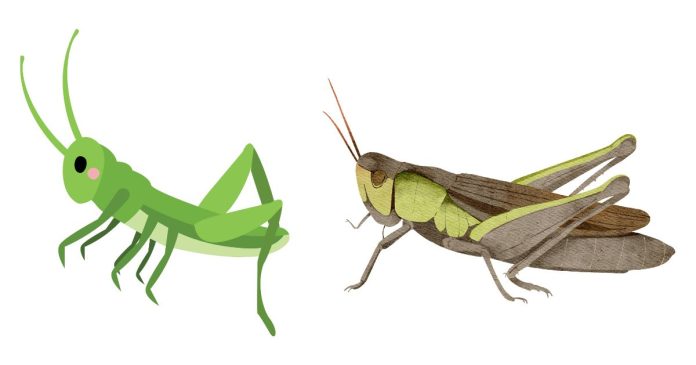Is a Grasshopper a Producer, Consumer, or Decomposer?
When it comes to understanding ecosystems, it’s important to know the roles different organisms play. One such creature you might encounter is the grasshopper, a common insect found in gardens, fields, and forests. But where does it fit in the food chain? Is a grasshopper a producer, consumer, or decomposer?
A Grasshopper is a Consumer
In the grand web of nature, a grasshopper is classified as a consumer. More specifically, it’s a primary consumer because it feeds on plants. Grasshoppers typically munch on grasses, leaves, and other vegetation, which makes them herbivores. As primary consumers, they sit near the bottom of the food chain, eating plants (producers) and converting the energy from these plants into the nutrients they need to survive.
Producers, Consumers, and Decomposers – The Basics
Before diving deeper into the grasshopper’s role, let’s quickly define these terms:
- Producers: These are organisms, like plants and algae, that produce their own food through the process of photosynthesis. They are the foundation of any food chain, creating energy from the sun.
- Consumers: These organisms can’t make their own food, so they rely on eating other organisms. Grasshoppers fall into this category, as they consume plants.
- Decomposers: These are organisms like fungi, bacteria, and some insects that break down dead plants and animals, returning nutrients back to the soil. They play a crucial role in recycling organic matter.
Grasshoppers in the Ecosystem
As primary consumers, grasshoppers play a critical role in ecosystems. By eating plants, they help control plant populations and serve as food for secondary consumers, such as birds, frogs, and small mammals. In this way, grasshoppers are an important part of the food chain, passing energy from producers (plants) to higher-level consumers.
Conclusion
So, is a grasshopper a producer, consumer, or decomposer? The answer is consumer! Grasshoppers are primary consumers because they feed on plants, making them an essential part of the food web. Understanding the role of grasshoppers—and other organisms in their ecosystems—helps us appreciate the complex interactions that keep nature running smoothly.
Related posts:
- What does ringing in the ears mean spiritually?
- What Colors Do Blue and Green Make?
- How Long Does Raw Chicken Really Last in the Fridge?
- What are some amazing and memorable Valentine’s Day ideas that will leave a lasting impression?
- What is the definition of ‘friends with benefits?
- What is the difference between a bachelor’s and a degree?


